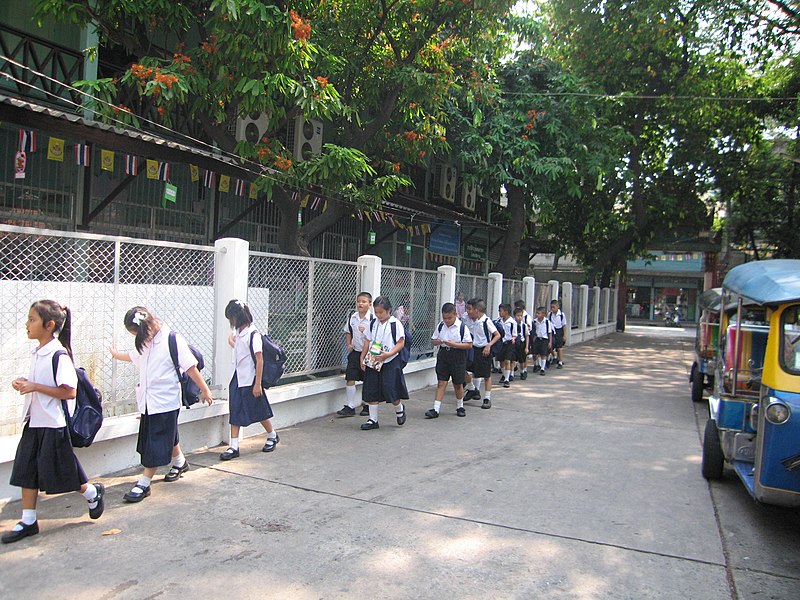Difference between revisions of "Adopting from Thailand"
(→Hague Convention Information) |
(→Who Can Adopt) |
||
| Line 42: | Line 42: | ||
=Who Can Adopt= | =Who Can Adopt= | ||
| − | + | In addition to the U.S. requirements, Thailand obliges prospective [[Adoptive Parents|adoptive parents]] to meet the following requirements in order to [[adopt]] a child from Thailand: | |
| + | |||
==Residency== | ==Residency== | ||
| + | |||
| + | Prospective adoption parents (PAPs) must generally work with the central or competent authorities of their country of residence if they have been living in that country for at least six months prior to submitting their [[dossier]] to DSDW and will remain in that country until they finalize the adoption. | ||
==Age of Adopting Parents== | ==Age of Adopting Parents== | ||
| + | |||
| + | PAPs must be at least 25 years old and 15 years older than the child to be [[adopted]]. These requirements also apply when adopting relative children. | ||
==Marriage== | ==Marriage== | ||
| + | |||
| + | A PAP may be single or married. Married PAPs must have been married for at least two years. The marriage must be legally recognized. Thai law does not recognize same-sex marriage. | ||
==Income== | ==Income== | ||
| + | |||
| + | While there are no formal income requirements, PAPs must provide proof of income (e.g. tax returns, letters from employers stating income, bank statements, etc.) with their request ([[dossier]]) to the DSDW to [[adopt]]. | ||
==Other== | ==Other== | ||
| + | PAPs must be legally qualified under U.S. law to [[adopt]] a child. | ||
=Who Can Be Adopted= | =Who Can Be Adopted= | ||
Revision as of 20:07, 10 April 2014
Contents
Hague Convention Information
Thailand is party to the Hague Convention on Protection of Children and Co-operation in Respect of Intercountry Adoption(Hague Adoption Convention). Intercountry adoption processing in Hague countries is done in accordance with the requirements of the Convention; the U.S. implementing legislation, the Intercountry Adoption Act of 2000 (IAA); and the IAA’s implementing regulations, as well as the implementing legislation and regulations of Thailand.
A domestic adoption of a Thai child cannot be processed under Thailand’s laws and procedures implementing the Hague Adoption Convention. A domestic adoption will not render a child eligible under U.S. law as a beneficiary of a Form I-800 petition or an IH-3 or IH-4 immigrant visa. In certain circumstances, such an adopted child may be eligible for U.S. immigration benefits through approval of a Form I-130 petition, after two years of physical and legal custody. For more information on this process, please visit the website of U.S. Citizenship and Immigration Services.
NOTE: Special transition provisions apply to adoptions initiated before April 1, 2008. Read about Transition Cases.
U.S. IMMIGRATION REQUIREMENTS FOR INTERCOUNTRY ADOPTIONS
To bring an adopted child to the United States from Thailand, you must meet eligibility and suitability requirements. The U.S. Department of Homeland Security, U.S. Citizenship and Immigration Services (USCIS) determines who can adopt under U.S. immigration law.
Additionally, a child must meet the definition of Convention adoptee under U.S. law in order to immigrate to the United States on an IH-3 or IH-4 immigrant visa.
Who Can Adopt
In addition to the U.S. requirements, Thailand obliges prospective adoptive parents to meet the following requirements in order to adopt a child from Thailand:
Residency
Prospective adoption parents (PAPs) must generally work with the central or competent authorities of their country of residence if they have been living in that country for at least six months prior to submitting their dossier to DSDW and will remain in that country until they finalize the adoption.
Age of Adopting Parents
PAPs must be at least 25 years old and 15 years older than the child to be adopted. These requirements also apply when adopting relative children.
Marriage
A PAP may be single or married. Married PAPs must have been married for at least two years. The marriage must be legally recognized. Thai law does not recognize same-sex marriage.
Income
While there are no formal income requirements, PAPs must provide proof of income (e.g. tax returns, letters from employers stating income, bank statements, etc.) with their request (dossier) to the DSDW to adopt.
Other
PAPs must be legally qualified under U.S. law to adopt a child.
Who Can Be Adopted
How to Adopt
Adoption Authority
The Process
Traveling Abroad
Applying for Your U.S. Passport
A valid U.S. passport is required to enter and leave Thailand. Only the U.S. Department of State has the authority to grant, issue, or verify U.S. passports. Getting or renewing a passport is easy. The Passport Application Wizard will help you determine which passport form you need, help you to complete the form online, estimate your payment, and generate the form for you to print-all in one place.
Obtaining Your Visa
In addition to a U.S. passport, you also need to obtain a visa. A visa is an official document issued by a foreign country that formally allows you to visit. Where required, visas are attached to your passport and allow you to enter a foreign nation. To find information about obtaining a visa for Thailand, see the Department of State's Country Specific Information.
Staying Safe on Your Trip
Before you travel, it's always a good practice to investigate the local conditions, laws, political landscape, and culture of the country. The State Department is a good place to start. The Department of State provides Country Specific Information for every country of the world about various issues, including the health conditions, crime, unusual currency or entry requirements, and any areas of instability.
Staying in Touch on Your Trip
When traveling during the adoption process, we encourage you to register your trip with the Department of State. Travel registration makes it possible to contact you if necessary. Whether there's a family emergency in the United States, or a crisis in Thailand, registration assists the U.S. Embassy or Consulate in reaching you. Registration is free and can be done online.
After Adoption
What resources are available to assist families after the adoption?
Many adoptive parents find it important to find support after the adoption. Take advantage of all the resources available to your family -- whether it's another adoptive family, a support group, an advocacy organization, or your religious or community services.
Here are some good places to start your support group search:
Child Welfare Information Gateway
North American Council on Adoptable Children
Adoption Services Support Group for Adopting Persons
SOURCE
Intercountry Adoption, Bureau of Consular Affairs. U.S. Department of State Country Information










